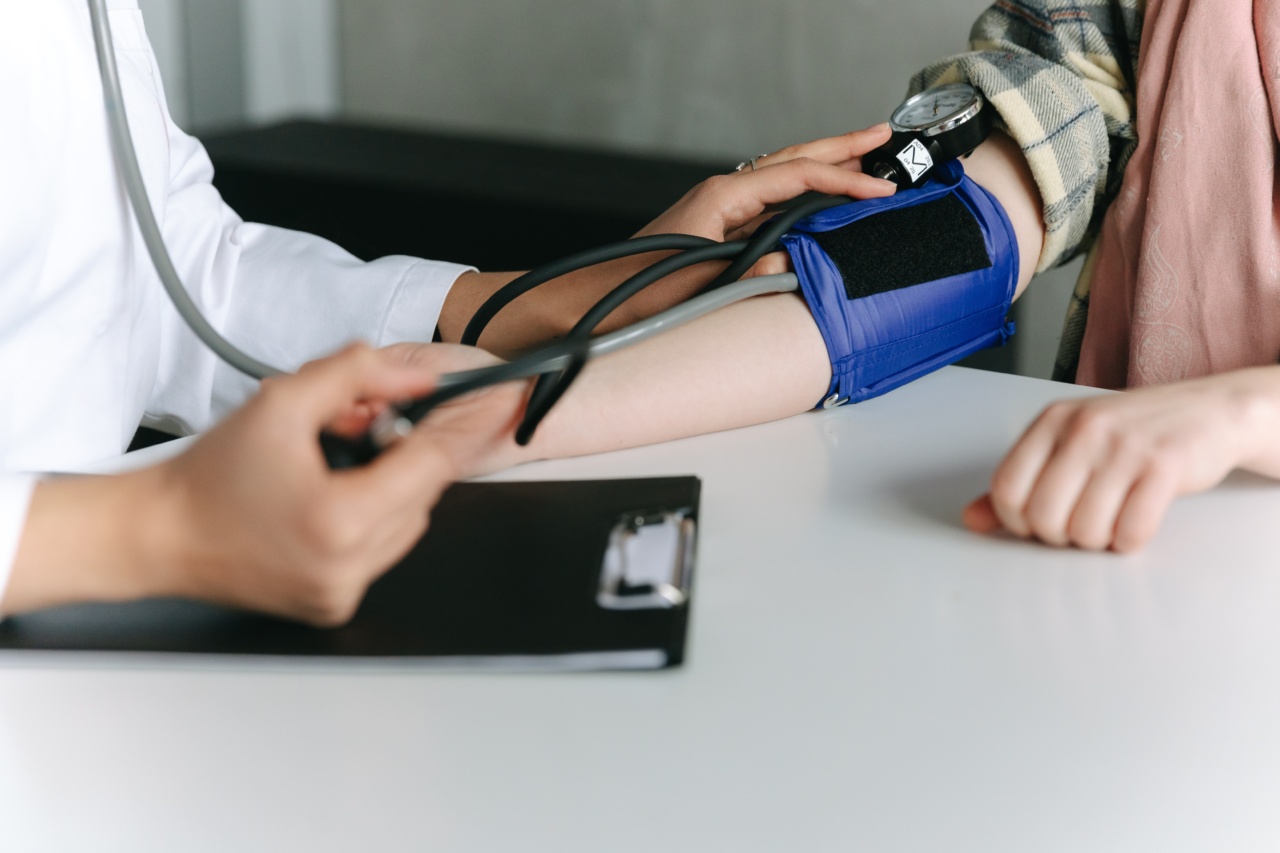Hypertension, or high blood pressure, is a condition in which the force of the blood against the walls of the arteries is too high. Over time, this elevated pressure can cause serious health problems such as heart disease, stroke, and kidney failure.
In fact, hypertension is one of the leading causes of death worldwide, with an estimated 1.13 billion people affected.
What is Blood Pressure?
Blood pressure is the force that the blood exerts on the walls of the arteries as it flows through them. It is measured using two numbers: the systolic pressure (the higher number) and the diastolic pressure (the lower number).
The systolic pressure represents the pressure in the arteries when the heart contracts and the diastolic pressure represents the pressure between heartbeats when the heart is resting.
What are the Causes of Hypertension?
There are several factors that can contribute to the development of hypertension:.
- Family history of hypertension
- Being overweight or obese
- Lack of physical activity
- Salt-rich diet
- Smoking
- Alcohol consumption
- Chronic stress
- Underlying medical conditions such as kidney disease, sleep apnea, and thyroid problems
- Certain medications such as birth control pills and decongestants
How is Hypertension Diagnosed?
Hypertension is usually diagnosed by measuring blood pressure using a blood pressure cuff and a stethoscope or automated machine.
A diagnosis of hypertension is made if the systolic pressure is consistently higher than 140 mm Hg or the diastolic pressure is consistently higher than 90 mm Hg.
What are the Symptoms of Hypertension?
Most people with hypertension do not have any symptoms.
This is why hypertension is often referred to as the “silent killer.” However, in severe cases, hypertension can cause symptoms such as headache, dizziness, shortness of breath, and chest pain. If you experience any of these symptoms, you should seek medical attention immediately.
How is Hypertension Treated?
The goal of hypertension treatment is to lower blood pressure to a healthy range to reduce the risk of complications.
Lifestyle changes such as losing weight, increasing physical activity, reducing salt intake, and quitting smoking can help lower blood pressure. In some cases, medication may also be necessary to lower blood pressure. There are several classes of medications that are used to treat hypertension, including:.
- Diuretics
- Beta-blockers
- Calcium channel blockers
- ACE inhibitors
- Angiotensin receptor blockers
What are the Complications of Hypertension?
If left untreated, hypertension can cause serious health problems, including:.
- Heart attack
- Stroke
- Kidney failure
- Vision loss
- Sexual dysfunction
How can Hypertension be Prevented?
There are several lifestyle changes that can help prevent hypertension, including:.
- Maintaining a healthy weight
- Eating a healthy diet
- Reducing salt intake
- Exercising regularly
- Limiting alcohol consumption
- Quitting smoking
- Managing stress
Conclusion
Hypertension is a common and dangerous health condition that affects millions of people worldwide. However, by making lifestyle changes and seeking medical treatment when necessary, hypertension can be managed and complications can be prevented.
If you have concerns about your blood pressure, talk to your healthcare provider.






























